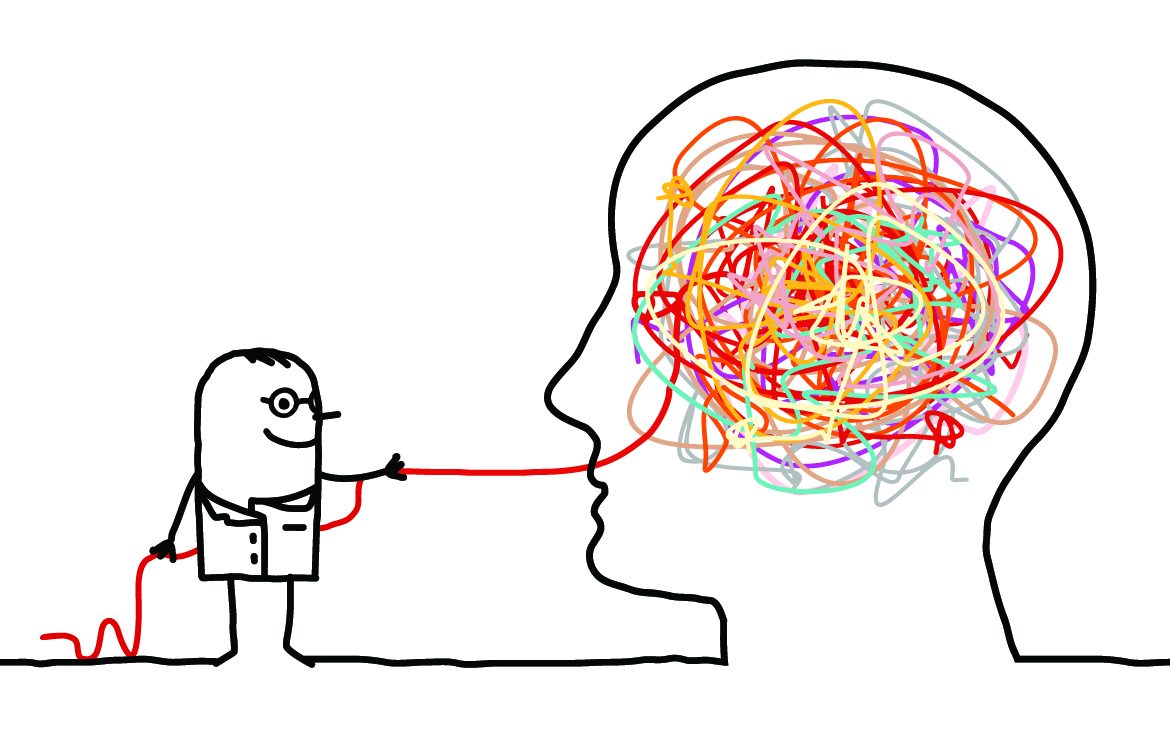Think you are psych-smart?
University of Liverpool psychologist, Ben Ambridge recently gave a Ted Talk on Psychology-IQ (Psy-Q) to debunk the 10 widespread misconceptions we have about psychology. Read on to test your Psy-Q now!
Myth #1. “My boyfriend is definitely from another galaxy, he just doesn’t get me.”
The truth: Studies suggest that the biggest psychological difference between men and women are observed on performance tests measuring spatial awareness (map reading), and language/grammar skills. According to Ambridge, most psychologists suggest that men do better on spatial awareness tests and women are better on language and grammar tests. However, when the performance graphs of the two genders are individually compared, the difference is tiny. Hence, striking differences between men and women do not necessarily exist and they indeed come from the same galaxy.
Myth#2. “I’m delusional according to the Rorschach inkblot test.”
The truth: Ambridge says, “Rorschach inkblot tests have basically no validity when it comes to diagnosing people’s personality and are not used by modern-day psychologists.” In fact, one study revealed that the inkblot test erroneously diagnosed 1/6 of completely normal patients with schizophrenia.
Myth#3. “I’m a visual learner, no wonder I’m failing calculus.”
The truth: Studies show that when people are asked to work on a task in their preferred learning style and the opposite style (e.g., visual vs. auditory), they retain the same amount of information regardless of their learning style. As Ambridge eloquently sums up, “The best presentation format depends not on you, but on what you’re trying to learn.” So, better get your analytical thinking skills on if you want to succeed in calculus.”
Myth#4. “If I work hard enough, I can ace any exam.”
The truth: Sometimes it is more about nature than nurture. When researchers compared the GCSE (academic qualification) results of identical and non-identical twins, they found that about 58% of the variation in GCSE performance was due to genes. Though hard work is indispensable, it turns out that our genes also have a big role to play in academics.
Myth#5. “Left-brained people are more logical so, that’s why I should be an accountant.”
The truth: We do not mechanically switch between the two sides of the brain when we are working on a task. According Ambridge, one reason why this myth has gained so much popularity is that people who can work with both of their hands (ambidextrous people) tend to be more creative than people who predominantly use one hand. Moreover, Ambridge suggests that there is a lot more communication between the two sides of ambidextrous people’s brains. Since, the right side of the brain controls the left side of the body and more left-handed people can use both of their hands than right-handed people, it is thought that left-handed people are more creative than right-handed ones
Myth#6. “We only use 10% of our brain.”
The truth: We use every part of our brain even when we are having a conversation with a friend.
Myth#7. “I’ll get an A on the final if I listen to Mozart while I’m studying.”
The truth: Listening to Mozart neither raises people’s I.Q. scores nor makes them “smarter.” In one study, when researchers compared the I.Q. scores of people who were played Mozart music and those who listened to Stephen King stories before a task, found that both groups got a boost in their I.Q. scores. So, the boost in I.Q. has more to do with what we find enjoyable listening to prior to performing a task rather than the kind of material we are listening.
Myth#8. “Girls like ‘bad’ boys.”
The truth: It is a myth that our preferences for romantic partners depend on the culture we are raised in. A study in which 32 different cultures were surveyed showed that men highly value physical attractiveness in romantic relationships, while women prefer ambitious and economically stable men regardless of culture.
Myth#9. “He’s got a hot-hand in basketball.”
The truth: The amount of hits and misses a basketball player makes is almost always statistically random. However, our brain likes to create patterns and attributes meaning to random events. As such, we cannot judge whether or not a player is “on form” just because he/she consecutively scores points.
Myth#10. “He must be lying, he kept touching his hands during our conversation.”
The truth: Countless psychological studies have shown that all of us (including police officers and detectives) do no better than chance when it comes to interpreting other people’s body language.
All in all, what these myths tell us is that psychology is so much more than “common knowledge” and that we need rigorous scientific research to back up what we think we know about the human nature.
REFERENCES
- 1. http://www.ted.com/talks/ben_ambridge_10_myths_about_psychology_debunked#t-867646 , November 2014



